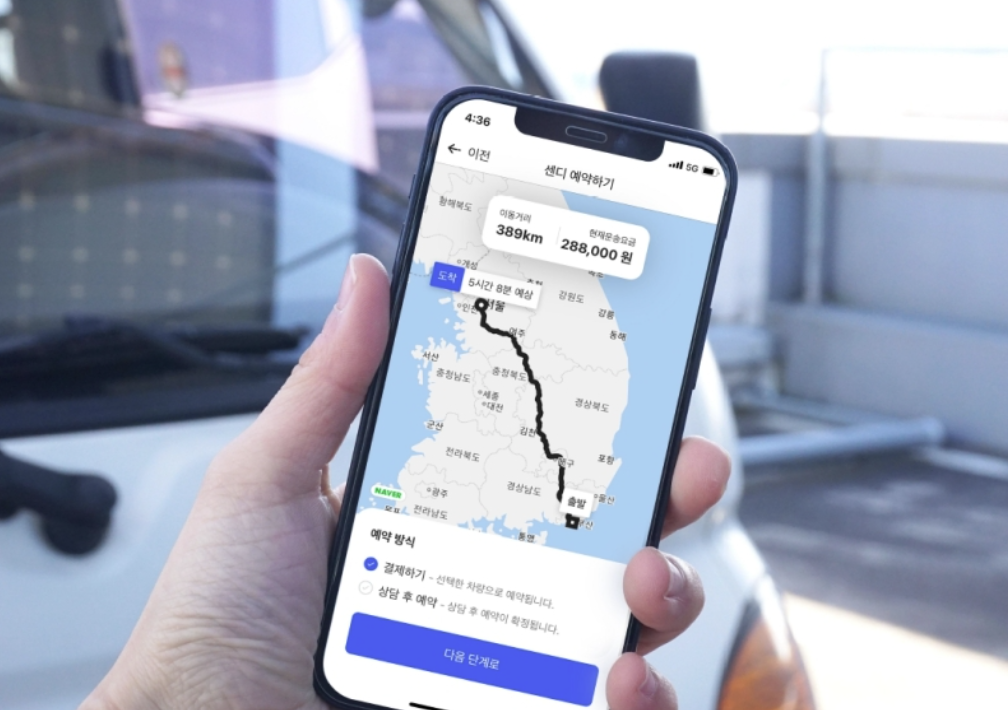🚛 Reading this article, you'll learn:
- In October 2023, amid a downturn in consumption and an investment cold wave, a startup named 'Sendy' successfully raised 70 billion won in Series B funding for its freight transportation platform business. As is well-known, 2023 was the year when major corporations, including the three major telecommunications companies, Kakao Mobility, and CJ Logistics, consecutively entered the 'freight transportation platform' market. Despite the anticipated fierce competition, how was Sendy able to convince investors? Competing against large corporations, they say it's rather feasible? We sat down with CEO Yeom Sang-jun at Sendy's headquarters in Seomyeon, Busan, to discuss.
- Sendy believes competing against large corporations is manageable because Sendy focuses on a specialized area called 'light freight,' rather than the entire freight transportation market. However, to the general public, the difference between light freight and freight transportation may not be clear. We can understand what the Korean government defines as light freight, what Sendy defines as light freight, and how this definition allows us to find Sendy's competitive edge.
- Sendy describes their goal as creating a 'flywheel' that simultaneously achieves cost savings for shippers, increased earnings for truck owners, and revenue growth for the platform, Sendy. While this is indeed a noble goal, one might wonder if it's feasible without creating unprecedented value. However, Sendy believes it's entirely possible. We will look at how Sendy operates the flywheel with specific examples for shippers, truck owners, and the platform.
- The name Sendy (Send Everything) embodies the ambition to transport everything. Although Sendy currently focuses on the limited area of light freight, they aim to expand into the entire freight transportation market and beyond in the future. We've summarized Sendy's current revenue model, their near-future revenue model, and their long-term goals. If Sendy achieves these dreams, then competing with large corporations will not be an issue. After all, this is a goal not even multi-trillion won revenue logistics giants have achieved.

CHAPTER 1
70 Billion Won Investment in This Economic Climate?
Those in the startup industry must have felt the recent investment chill firsthand. Yet, in October last year, a logistics startup successfully closed a 70 billion won Series B funding round, which might not seem like a huge amount for a Series B round. However, what caught my attention wasn't the amount of investment, but the market the company operates in: the 'freight transportation platform'. This is the story of 'Sendy'.
In 2023, the freight transportation platform market saw entries from major corporations, including the three major telecom companies, Kakao Mobility, and CJ Logistics, indicating the market's attractiveness (with some estimates going as high as 40 trillion won). For startups with limited resources, the continuous entry of large corporations into the market could be quite daunting.
Investors in Sendy, such as KDB Industrial Bank, BNK Venture Investment, Shinhan Asset Management, Coolidge Corner Investment, and We Ventures, knew this better than anyone. Amid such challenging conditions, why did they decide to invest? And how did Sendy manage to attract a substantial investment by presenting their vision?
CONNECTUS visited Sendy's headquarters in Seomyeon, Busan, to hear directly from CEO Yeom Sang-jun. Yeom explained that during the investment process, he often faced questions about the entry of large corporations into the freight transportation platform market. Not only during this Series B funding round but also during the previous Series A round, he received numerous inquiries, citing failed attempts by large corporations like CJ Logistics' Hello and SK Planet's Trucking, questioning if Sendy could succeed.
Returning to the point, Yeom confidently stated that despite the intensified competition, survival and even growth were possible. He cited two main reasons: Sendy's focus on a 'specialized area' rather than targeting the entire freight transportation market, and, if considering Sendy's precursor, the moving platform 'MoveMoa', the company's extensive experience and understanding of the offline field since 2015.
What does this mean? Starting with Yeom's response, we explored what Sendy's targeted competitive edge, the 'flywheel', is. This flywheel's structure may seem impossible at first glance. It aims to simultaneously achieve three values: reducing transportation costs for shippers, increasing transportation revenue for truck owners, and enhancing profits for the platform, Sendy.
